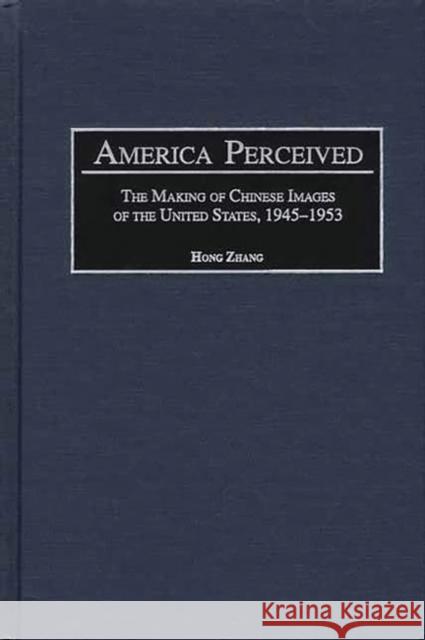America Perceived: The Making of Chinese Images of the United States, 1945-1953 » książka
America Perceived: The Making of Chinese Images of the United States, 1945-1953
ISBN-13: 9780313310010 / Angielski / Twarda / 2002 / 232 str.
While American images of China have been characterized by a fluctuating love/hate relationship, many educated urban Chinese youths also retained ambivalent feelings toward the United States in the early decades of the 20th century. The years between the end of the Second World War and the outbreak of the Korean War represented a significant period in Sino-American relations. This study places the shifting perceptions of the United States among an important political group--young, volatile, and politically active urban Chinese--into historical perspective through the examination of the origin, development, and eruption of their anti-American sentiment. These feelings would prove to be a liability to the Chinese Nationalist cause and would ultimately assist in easing the way of the Communists into urban China.In the immediate post-World War II period, American influence and presence in China reached an unprecedented peak. However, American political, military, and economic activities largely failed to generate Chinese good will; instead, such actions produced political antipathy toward the United States. The sojourn of American GIs in urban China, for example, would serve as a critical factor in arousing nationalist fervor. The Chinese Communist Party would capitalize on this groundswell and push it to the foreground during open hostilities with the United States after the outbreak of the Korean War.











